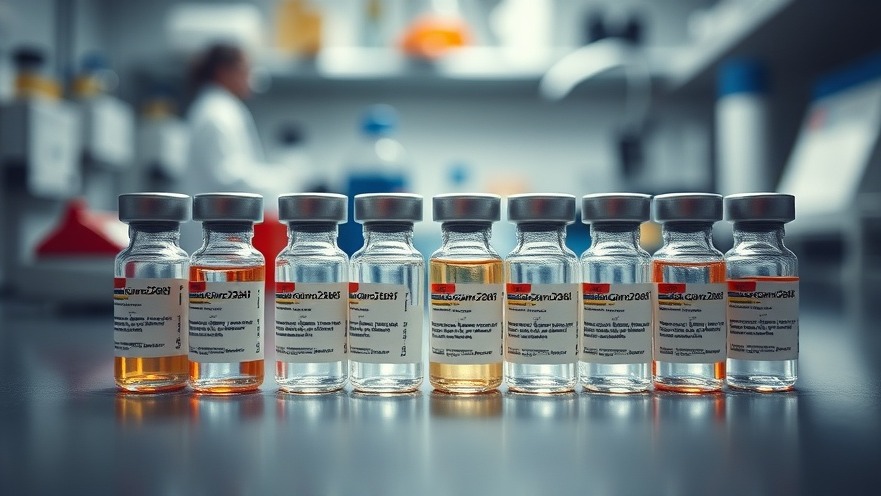
Harnessing Technology for Vaccination Speed
In an era where quick responses to health crises are imperative, a groundbreaking initiative is seeking to transform vaccine production methodologies. An international coalition spearheaded by researchers from the University of Waterloo and involving partners from Canada, Brazil, and the UK is at the forefront of this technological revolution.
Reducing the Time from Days to Hours
The traditional vaccine production timeline can take around nine days, which is far too slow in times of outbreak. The newly crafted technology aims to streamline this to just a single day. Dr. Valerie Ward, a leading researcher in this project, emphasizes the significance of being able to produce vaccines on-site as a means to control localized outbreaks effectively and efficiently.
Local Solutions to Global Problems
This initiative emerges amidst the reality that many low-income nations lack the infrastructure to produce vaccines locally. The World Health Organization highlights that around 50% of the population in these regions are inadequately vaccinated. The development of smaller, transportable units designed to manufacture vaccines directly at the site of need empowers healthcare workers and authorities to respond swiftly to outbreaks.
The 100 Days Mission: A Global Commitment
The Coalition for Epidemic Preparedness Innovations (CEPI) has funded this effort with a generous grant of $2.8 million, supporting its 100 Days Mission—the aim to shorten vaccine development timelines amidst pandemics. This endeavor aligns with the ongoing G7 and G20 initiatives which also recognize the need for agility in vaccine rollout.
MANGO: A Game-Changer in Vaccine Development
At the core of this novel approach is MANGO (Manufacturing on the Go), an innovative device designed by Dr. Keith Pardee at the University of Toronto. MANGO vastly improves the velocity of producing Viral-Like Particles (VLPs) essential in many vaccines. Previously, manufacturing required living cells, a slow and cumbersome process. The clever technology of cell-free expression utilized by MANGO accelerates production from days to a matter of hours, making a striking difference in the fight against infectious diseases.
Why VLPs Are Pivotal for Vaccine Safety
VLPs mimic viruses in structure but do not contain the virus's genetic material, rendering them safe for all demographics, including children and the elderly. Dr. Ward illustrates that the utilization of VLPs has great promise as they provoke an immune response similar to real infections, laying down a robust defense without exposing anyone to risk.
The Broader Implications: A Future Without Outbreak Hesitation
Tackling the timescales associated with vaccine production in the face of outbreaks not only saves lives but also alleviates systemic pressure on healthcare systems worldwide. If successful, this initiative could pave the way for rapid response protocols that would diminish the impact of future pandemics, making it vital for health practitioners to stay abreast of these developments.
Final Thoughts: Embracing the Future of Vaccination
As concierge health practitioners looking after your patients’ wellness and safety, understanding innovations like MANGO equips you with knowledge that could influence your approach to patient care. Attention to these emerging technologies can enhance the care you provide and ensures preparedness for any future health crises.
For those invested in the intersection of healthcare and technology, now is the time to engage with these conversations. Keeping informed about advancements in vaccination strategies can ensure you are at the forefront of delivering optimal patient care.
 Add Row
Add Row  Add
Add 




Write A Comment